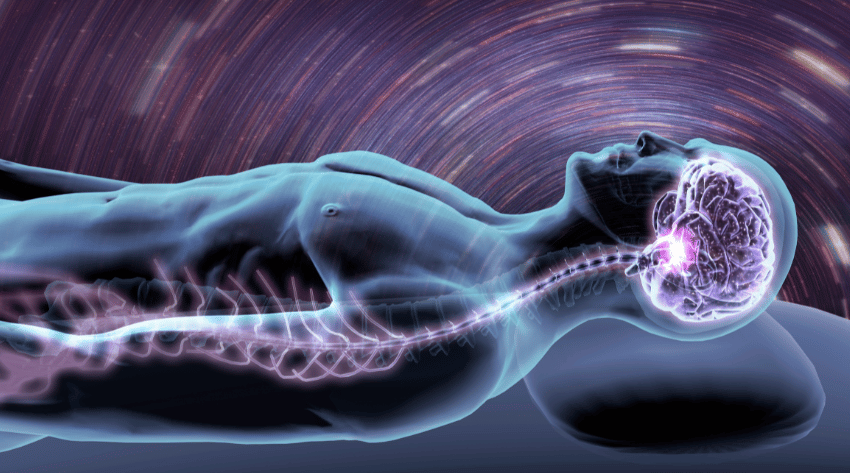We all know that good sleep makes us feel sharper, happier, and more energized. But sleep is about so much more than just rest. Over the years, research has shown a fascinating link between sleep and brain health, revealing just how essential those precious hours are for cognitive function, emotional well-being, and even the prevention of neurological diseases. Let’s dive into the science and explore how sleep affects our brains and why prioritizing it might be one of the best things you can do for your health.
The Essential Role of Sleep in Brain Health
It’s easy to think of sleep as just “time off” for our bodies, but it’s a highly active time for our brains. When we drift into sleep, our brains start performing essential tasks like memory consolidation, toxin removal, and emotional processing. Without quality sleep, these processes can falter, affecting everything from our memory to our emotional resilience.
Memory Consolidation
One of the major things that happens during sleep is memory consolidation, a process where the brain organizes and stores information gathered throughout the day. Think of it as your brain’s filing system. During the deeper stages of sleep, especially during REM sleep, memories are processed and stored, making it easier for us to recall them later. Studies show that without enough sleep, our ability to form new memories and retain information diminishes. This is particularly important for learning new skills or retaining complex information.
For example, students who sleep well after studying are more likely to retain what they learned, while those who pull all-nighters may struggle to remember much at all. It’s a powerful reminder that sleep is just as crucial to learning as studying is.
Brain Detoxification
Another incredible process that happens while we sleep is brain detoxification. Our brains have a unique waste clearance system called the glymphatic system, which works mainly during sleep. This system removes toxins and waste products that build up in the brain during the day. Among these waste products is beta-amyloid, a protein linked to Alzheimer’s disease when it accumulates.
Research has shown that poor sleep can lead to reduced clearance of these toxins, which, over time, can contribute to the development of neurodegenerative diseases like Alzheimer’s and Parkinson’s. The takeaway? Prioritizing sleep is essential for giving our brains the chance to cleanse themselves.
How Sleep Affects Mood and Emotional Health
If you’ve ever been cranky after a poor night’s sleep, you know how deeply sleep affects our moods. But there’s more to this than just a bad mood—sleep and mental health are closely intertwined.
Sleep and Emotional Resilience
Studies have shown that a good night’s sleep helps regulate our emotions. When we sleep, our brains process and regulate emotions from the day, helping us to manage stress and negative feelings. On the flip side, sleep deprivation can make us more sensitive to negative emotions and less able to cope with stress. This is why chronic sleep deprivation is linked to an increased risk of mental health issues, including anxiety and depression.
The Role of REM Sleep in Emotional Processing
Rapid Eye Movement (REM) sleep, the dream-rich phase, plays a particularly important role in emotional processing. During REM, the brain replays emotional experiences, helping us process them in a safe, “offline” environment. This allows us to wake up feeling more emotionally balanced and ready to take on the day.
When we don’t get enough REM sleep, our brains may not fully process negative experiences, which can lead to irritability and heightened stress. Chronic sleep deprivation, which deprives us of REM sleep, has even been linked to more severe mental health problems, including post-traumatic stress disorder (PTSD) and bipolar disorder.
The Sleep-Deprived Brain: What Happens When We Don’t Get Enough?
Lack of sleep affects the brain in more ways than we might realize. Chronic sleep deprivation impairs cognitive functions like attention, decision-making, and reaction time. But even one poor night’s sleep can have noticeable effects.
Impaired Cognitive Function
When we’re sleep-deprived, it’s harder to focus, process information, and make decisions. This is because sleep deprivation affects the prefrontal cortex, the area of the brain responsible for higher-order functions like reasoning, problem-solving, and impulse control. Lack of sleep makes us more prone to poor judgment and impulsivity, which is why we’re often more likely to reach for junk food, snap at loved ones, or make mistakes after a sleepless night.
Increased Risk of Neurodegenerative Diseases
Sleep and long-term brain health are also closely linked. Studies have shown that chronic sleep deprivation can increase the risk of neurodegenerative diseases like Alzheimer’s, Parkinson’s, and even multiple sclerosis. This is likely due to the brain’s reduced ability to clear out harmful proteins and waste products when we don’t get enough sleep. Over time, this accumulation of waste can lead to cognitive decline and increase our risk of developing age-related brain diseases.
The Science Behind Sleep Cycles and Brain Health
Our brains cycle through different stages of sleep, each with its unique benefits for our brain health. Understanding these stages can help us appreciate why we need a full night’s rest.
- NREM Stage 1: This is the lightest stage of sleep, lasting just a few minutes as we transition from wakefulness to sleep. Here, the brain waves start to slow down, and muscle activity decreases.
- NREM Stage 2: As we enter a slightly deeper sleep, our body temperature drops, and our heart rate slows. Stage 2 sleep is where we spend the most time, and it’s essential for memory consolidation and the preparation for deeper sleep stages.
- NREM Stage 3 (Slow-Wave Sleep): This deep sleep stage is essential for physical restoration and immune system health. Slow-wave sleep is when the glymphatic system is most active, clearing toxins from the brain.
- REM Sleep: Finally, we enter REM sleep, the stage associated with vivid dreams. REM sleep is critical for emotional regulation, learning, and creativity. During REM, the brain consolidates memories, processes emotions, and facilitates problem-solving.
A full night’s sleep ensures that we move through all these stages multiple times, giving the brain the time it needs to repair, rejuvenate, and detoxify.
Causes of Poor Sleep
Let’s talk about sleep struggles—it’s something most of us have experienced at one time or another. Maybe you’re lying awake, tossing and turning, or waking up feeling groggy. Whatever the case, getting to the root of why you’re not sleeping well can help. Let’s explore the top ten reasons for sleep disruption and what you can do about them.
Stress
Stress is a huge sleep disruptor, and in today’s world, stress levels are high due to everything from isolation and financial worries to health concerns. When we’re stressed, our bodies produce more cortisol, the stress hormone. Elevated cortisol leads to a spike in blood sugar, which then crashes, waking us up in the night.
Addictive behaviors, such as spending too much time on social media, can lower dopamine, increasing depression and “perceived” stress. This creates a vicious cycle where stress impacts sleep, and lack of sleep increases stress. Breaking that cycle means addressing stress through relaxation techniques, limiting exposure to anxiety-inducing content, and giving your body the tools it needs to unwind.
Stimulants
Caffeine, tea, and even chocolate are stimulants that affect people differently but can disrupt sleep, especially if you’re sensitive to them. Consuming caffeine late in the day can raise cortisol levels, making it harder to wind down. Try cutting back on caffeine or making sure you have it only before noon to give your body plenty of time to metabolize it before bedtime.
Overtraining
Exercise is great for sleep, but overtraining or working out too close to bedtime can have the opposite effect. Signs of overtraining might include feeling your pulse racing as you lay down to sleep. Try incorporating light evening walks instead, which can help calm your nervous system, stabilize blood sugar, and sync with your natural circadian rhythm.
Exposure to Wi-Fi and Technology
We’re surrounded by screens and devices, and the blue light emitted from these disrupts melatonin production, the sleep hormone. Wi-Fi and other electromagnetic fields (EMFs) can also impact your sleep. Your brain tunes into these frequencies, which isn’t exactly a calming effect. Turning off Wi-Fi at night, keeping devices out of the bedroom, and investing in blue light-blocking glasses can help create a more sleep-friendly environment.
Low Potassium
Low potassium levels can be another reason you’re tossing and turning. Potassium has a calming effect on the nervous system and helps to regulate your pulse. Refined carbs (think bread, pasta, and sugars) drain potassium, so increasing potassium-rich foods like leafy greens and bananas can help. Plus, potassium helps lower blood pressure and reduce nighttime muscle cramps, which can also disturb sleep.
Eating Carbs Too Close to Bedtime
A carb-heavy bedtime snack may feel satisfying at the moment, but it can cause a blood sugar spike, followed by a crash. This cycle wakes you up as your body releases cortisol to stabilize blood sugar, leading to disrupted sleep. Try having low-carb, protein-rich snacks if you need something before bed, like a hard-boiled egg or a spoonful of almond butter. Avoid eating at least three hours before bed to keep your blood sugar stable through the night.
Eating Too Much Fat Close to Bedtime
While fats are essential for a balanced diet, eating too much fat right before bed can cause digestive discomfort, especially if your gallbladder is sensitive. If you’re following a high-fat or keto diet, avoid eating heavy fats too close to bedtime to give your digestive system time to settle.
Light
Our bodies are wired to sleep in darkness. Even small amounts of light can signal the brain to suppress melatonin, which disrupts sleep. Aim for a pitch-black room with blackout curtains or an eye mask. When you wake up, try to get exposure to natural light to kickstart your circadian rhythm and increase your energy for the day.
Bloating
There’s nothing worse than trying to fall asleep when you feel bloated. Digestive discomfort is common and can stem from various causes, from food intolerances to eating too quickly. A light, earlier dinner with digestion-friendly foods can make a big difference. Avoid carbonated drinks, and consider a gentle walk after dinner to aid digestion.
Your Bladder
If you’re waking up to use the bathroom frequently, it might be a sign of insulin resistance. When blood sugar isn’t managed well, it leads to excessive thirst and more frequent urination, which disrupts sleep. Cutting back on sugar and refined carbs, especially in the evening, and managing insulin levels can help reduce these nighttime bathroom trips.
The Top Supplements to Improve Sleep and Brain Health
Accelerated Cogniblast®
Accelerated Cogniblast® is a unique brain-boosting supplement that combines ancient Ayurvedic herbs, advanced nootropics, and Scalar frequencies to give your brain a true edge. It’s designed to elevate mood, focus, and mental energy while calming anxiety. With benefits that may include improving memory, motivation, circulation, and even lowering inflammation, it’s more than just a cognitive enhancer—it’s support for your whole body’s health, targeting areas like liver, kidney, and lung function to optimize overall vitality.
This formula is packed with potent ingredients like Magnesium BHB, which enhances brain energy, and Centrophenoxine, known to boost memory and protect against cognitive decline. Herbs like Ginkgo Biloba and Bacopa support focus and mental alertness, while adaptogens like Ashwagandha and American Ginseng help your body manage stress and sleep. Enhanced by Scalar frequencies, Accelerated Cogniblast® promotes a balanced, clear mind, supports healthy brain tissue, and encourages long-term brain health—all without any harsh stimulants.
Acceleradine® Iodine
Acceleradine® Iodine is a powerhouse for both brain health and sleep. If you’ve been feeling foggy, sluggish, or just “off,” an iodine deficiency could be part of the issue. This unique formula not only tackles brain fog and boosts clarity, but it also detoxifies the brain from heavy toxins like fluoride, helping you feel more mentally sharp and connected. Plus, it’s a huge supporter of metabolism and thyroid health—two areas closely tied to mood and energy. Research has shown that when the thyroid isn’t functioning optimally, depression and mental fog are more likely to creep in.
On top of supporting your brain, Acceleradine® also provides broad antimicrobial benefits, helping clear out harmful fungi, parasites, bacteria, and viruses that could be weighing you down mentally and even disrupting your sleep. By boosting ATP (your cells’ energy source) by 18 times, it gives you the stamina you need to tackle the day and improves your body’s ability to heal and burn fat. Enhanced with Scalar frequencies, it goes even further by clearing out radiation, heavy metals, and toxins that undermine brain health, sleep quality, and overall vitality.
Accelerated Methylene Blue®
If you’re dealing with brain fog, fatigue, or mental slumps, Accelerated Methylene Blue® could be just what you need to reboot. Here’s how it works:
Powerful Brain Support: Methylene blue acts as a potent antioxidant, tackling oxidative stress, a key player in aging and brain health issues. This neuroprotective agent is showing promise in helping with conditions like Alzheimer’s and Parkinson’s by optimizing cellular oxygen use and reducing brain cell damage. It even enhances your cells’ mitochondria, the energy powerhouses, to boost ATP production and keep your brain performing at its best.
More Than Just Brain Power: Methylene blue has natural antimicrobial properties, fighting off bacteria, viruses, and fungi that contribute to mental fog and low energy. It’s also been found to support mood by increasing serotonin, potentially offering natural antidepressant benefits. Plus, it improves blood flow by increasing nitric oxide, which relaxes blood vessels, enhancing oxygen delivery to the brain and aiding in brain injury recovery by reducing inflammation.
Why Choose Accelerated Methylene Blue®? This isn’t just methylene blue. Accelerated Methylene Blue® is crafted with 100% pure ingredients and John Ellis Distilled Water, known for its high hydrogen bond angle, pathogen-killing properties, and immune-supporting qualities. Enhanced with the GRANDER® Water System, this water has improved internal structure, stability, and vitality, making it naturally beneficial for all living systems.
Accelerated C60™
C60, or Carbon 60, is increasingly recognized for its potential to enhance sleep quality. Known for its antioxidant properties, C60 helps neutralize harmful free radicals in the body, which can otherwise lead to cellular stress and inflammation, both of which negatively impact sleep. By supporting cellular repair and reducing oxidative stress, C60 promotes a calmer, more balanced state, making it easier to fall asleep and stay asleep. Additionally, its effects on energy levels during the day can help regulate the sleep-wake cycle, leading to a more consistent and restful night’s sleep. For those dealing with sleep disruptions or oxidative stress-related fatigue, adding C60 to a wellness routine may contribute to deeper, more restorative sleep.
Accelerated C60™ stands out as a unique formulation of ESS60, setting itself apart from other C60 products on the market. What makes it truly special is that it’s based on the only formulation that has been rigorously tested, proven safe for human consumption, and backed by third-party trials—something no other C60 product can claim.
The creation process is just as meticulous. Accelerated C60™ is stirred slowly and carefully in the dark under controlled temperatures, with an inert buffer gas to maintain purity. Only the highest quality, Certified Organic, GMO-free olive oil (verified by MOSA and NOP) is used, ensuring purity and potency. This precious blend is then bottled in medical-grade cobalt blue glass, safeguarding it from harmful UV light to maintain its effectiveness. Every step is designed with quality and care in mind, so you get the very best of what C60 has to offer.
Accelerated Liver Care®
Accelerated Liver Care® isn’t just about liver support—it’s about comprehensive wellness, helping to clear out toxins, and supporting brain health and sleep quality. This blend of herbs from Ayurveda, Traditional Chinese Medicine, South American Rainforest, and modern nutraceuticals works in tandem to tackle all angles of liver health, from detoxification to gallbladder relief.
With ingredients like Phyllanthus, known as the “Stone Breaker,” and TUDCA, a bile acid that aids liver regeneration and protects brain cells, Accelerated Liver Care® gives your body the detox power it needs. It promotes microcirculation, oxygenates the liver, and optimizes blood sugar, which collectively supports a calmer, more balanced system conducive to better sleep and mental clarity.
What sets Accelerated Liver Care® apart is its quality and the careful synergy of its ingredients, all designed to elevate your health beyond detox. Enhanced with scalar frequencies, this formula ensures maximum absorption and cellular effectiveness, helping reduce inflammation and support overall immune function.
The added bonus? Improved digestion, clearer skin, and emotional steadiness—all tied to a well-supported liver. By maintaining a strong liver, you’re creating the foundation for better sleep, sharper cognitive function, and a body that feels energized and resilient every day.
BIOptimizers Sleep Breakthrough
This is a pre-bed drink designed to work with your body’s natural rhythms—without relying on melatonin. Instead, it stimulates your natural melatonin production, activates the calming GABA neurotransmitter, and quiets that “monkey brain” that keeps you tossing and turning. Sleep Breakthrough promotes deeper sleep by activating delta waves, leading to more restorative cycles. And the best part? You wake up refreshed, not groggy.
Lifestyle Changes for Better Sleep and Brain Health
Prioritizing sleep isn’t always easy, especially in our busy world, but it’s worth the effort. Here are some science-backed tips for improving sleep and, in turn, brain health.
- Stick to a Sleep Schedule: Going to bed and waking up at the same time every day, even on weekends, helps regulate your body’s internal clock, making it easier to fall asleep and wake up naturally.
- Create a Relaxing Bedtime Routine: A consistent routine signals to your brain that it’s time to wind down. Try activities like reading, taking a warm bath, or practicing deep breathing to promote relaxation.
- Limit Caffeine and Alcohol: Both caffeine and alcohol can interfere with your sleep cycle. Caffeine is a stimulant that can keep you awake, while alcohol, though it may make you drowsy, disrupts the deeper stages of sleep.
- Get Morning Sunlight: Natural light in the morning helps reset your circadian rhythm, making it easier to fall asleep at night. Try to spend some time outside or near a window each morning.
- Keep the Bedroom Dark and Cool: Darkness signals to your body that it’s time for sleep, while a cooler room temperature has been shown to improve sleep quality.
- Manage Stress: Chronic stress can keep you awake at night, so finding ways to manage it, such as through meditation, yoga, or journaling, can significantly improve sleep quality.
Final Thoughts: Sleep Is an Investment in Your Brain’s Future
Sleep is not just a nightly ritual—it’s an investment in your brain’s future. By understanding the link between sleep and brain health, we can start to see sleep not as an indulgence but as a vital component of cognitive function, emotional well-being, and long-term brain health.
From memory consolidation to toxin clearance, each hour of sleep is doing vital work for our minds and bodies. So, let’s give ourselves permission to prioritize it. It might just be one of the most effective (and enjoyable!) ways to protect our brains for years to come.
Sara Banta
Sara Banta is a Stanford University Graduate with a Degree in Economics and Psychology, and a certified Natural Supplement Expert & Graduate of the Institute for Integrative Nutrition. Sara is the Founder of Accelerated Health Products and host of the health & wellness podcast, Accelerated Health Radio.
- Sara Bantahttps://sarabantahealth.com/author/sarabanta/
- Sara Bantahttps://sarabantahealth.com/author/sarabanta/
- Sara Bantahttps://sarabantahealth.com/author/sarabanta/
- Sara Bantahttps://sarabantahealth.com/author/sarabanta/









